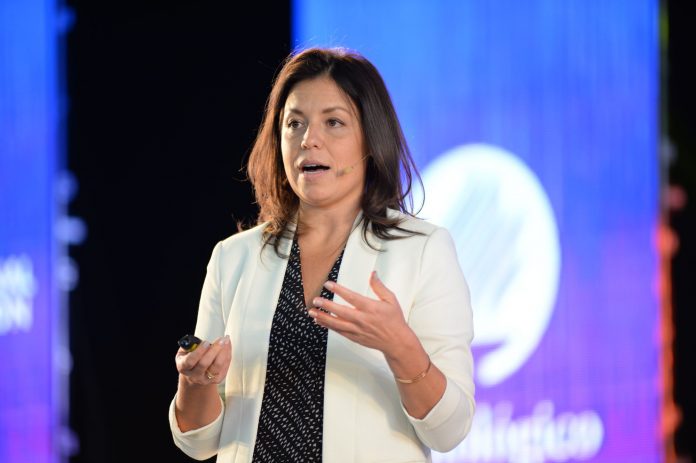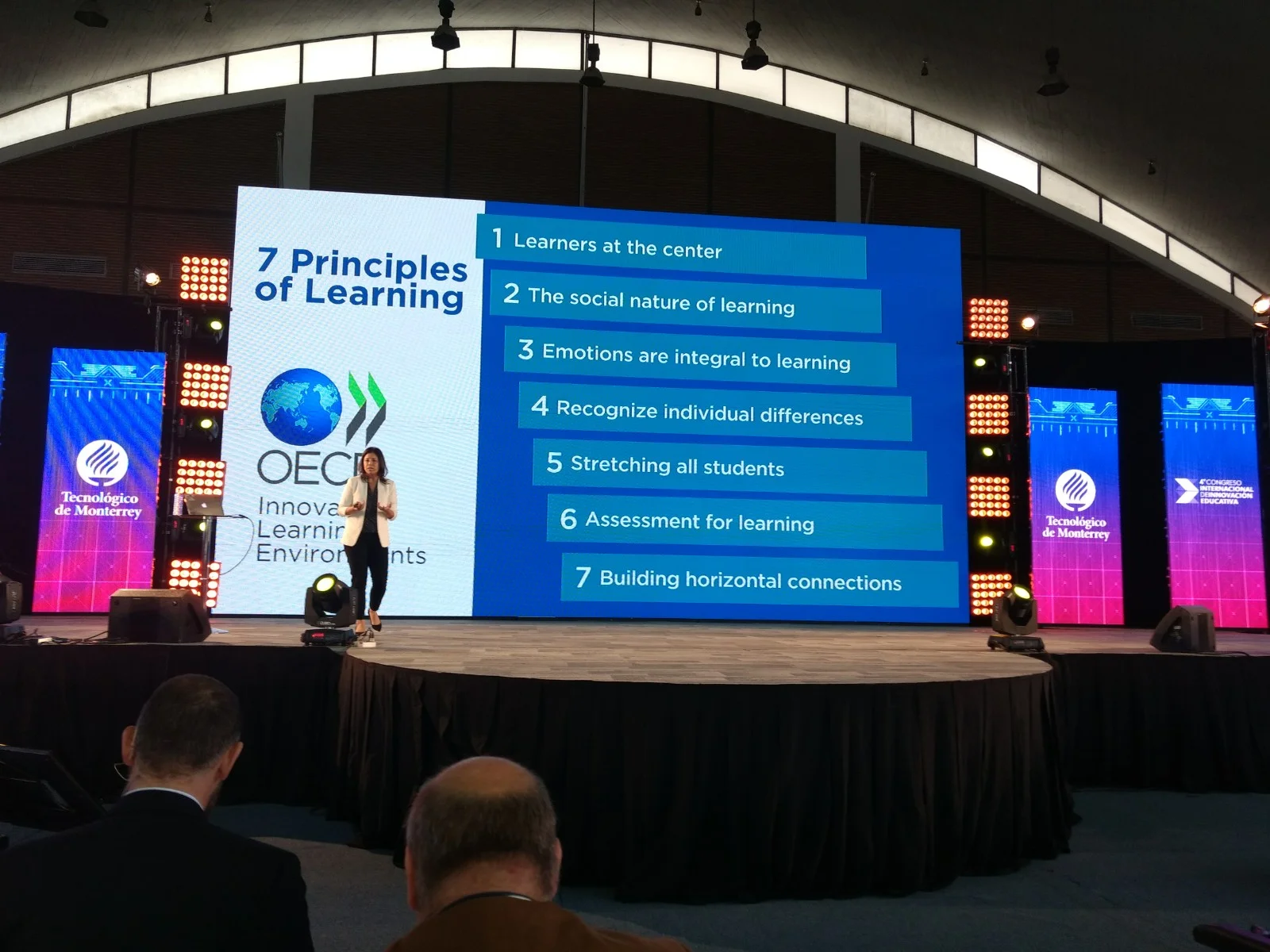In her keynote speech at the 4th International Congress on Educational Innovation, Jennifer Groff, Educational Engineer at the MIT Media Lab, unveiled the seven principles of learning.
These are: learners at the center, the social nature of learning, emotions are integral to learning, recognize individual differences, stretching all students, use assessments for learning, and building horizontal connections.
Groff stated that in many countries around the world, including Mexico, there are cases in which schools, educational organizations or governments, decide to supply equipment like tablets to students to bring technology to new generations and innovate the model of teaching.
“However, they soon find that these devices don’t give as much support to teachers or students as expected. Eventually, they dismiss such initiative as a failure. But why don’t these kinds of actions work?” Groff asked more than 3,000 people –most of them teachers.
“The problem is that they hope tablets will improve everything magically,” said the Massachusetts Institute of Technology (MIT) and Harvard University graduate –who began her career in the classroom as a teacher. “I quickly realized there was a great disconnect between what I learned in education school and what I could implement in the classroom, so I abandoned that idea and decided to start working directly with the system,” she recalled.
Currently, Groff dedicates her work to researching and designing new ways of teaching since, in her own words, she is passionate about understanding how people learn and she is willing to help them in this process. She discovered that “we should not think about redesigning teaching only by adjusting small pieces and thinking that this will fix the past, but looking forward, designing education for the future.”
According to the expert, education must be personal; it must focus on the development of the students; it must not cost much –even it should be a way to save money; it must be a facilitator for technology, and It must be applicable. “Based on this, the school can design a new teaching model trying to be innovative and setting goals,” she explained.
Jennifer Groff clarified that this is not a simple process and it should be persistent. “Teachers must be open to explore new paths, to experiment, to try different things, to seek change, which is not easy because education is a very conservative area,” she said. “And if there are failures, remember that this is good because it means that things are being done and that you are learning from them, and that is what will allow everyone to reach wherever they want to be.”
This article from Observatory of the Institute for the Future of Education may be shared under the terms of the license CC BY-NC-SA 4.0 
)
)



)